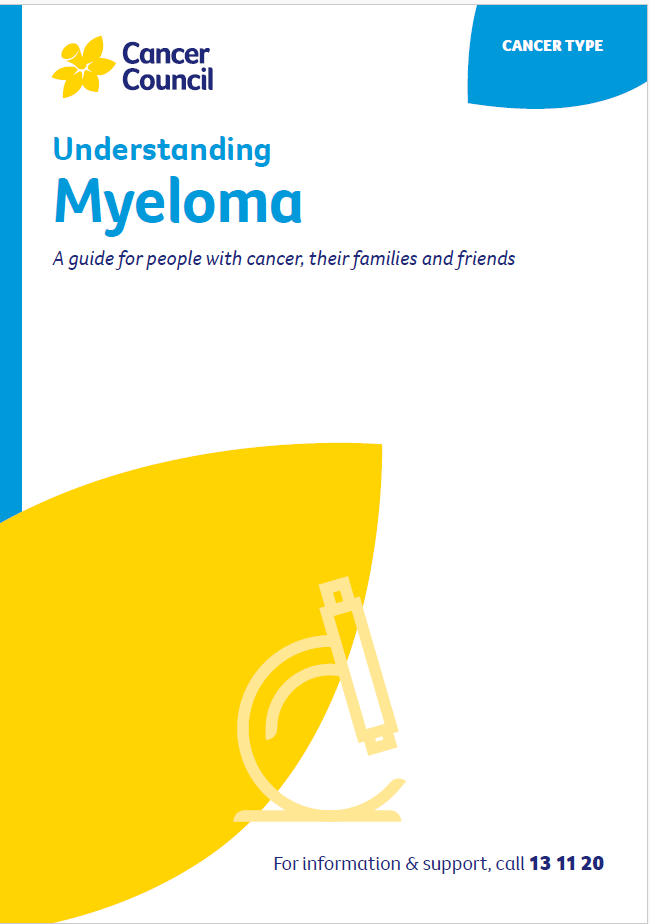Monoclonal antibodies
Learn how monoclonal antibodies and CAR T-cell immunotherapy use the body’s immune system to find and fight cancer cells.
Learn more about:
Monoclonal antibodies
Monoclonal antibodies are made in a laboratory but behave like natural antibodies that fight infection and disease. They target cancer cells and interfere with how they grow and survive. Available drugs include daratumumab and elotuzumab (in combination with lenalidomide).
How they are given – Monoclonal antibodies are injected into a vein (intravenously) or under the skin (subcutaneously).
Side effects – As these drugs are often given as an injection, they may cause an allergic reaction. Other possible side effects include a fever, nausea, diarrhoea and low blood pressure.
What is CAR T-cell immunotherapy?
At publication time (August 2024), CAR (chimeric antigen receptor) T-cell immunotherapy may be
available to some people who have relapsed myeloma, or when other treatment has not worked. It may be available to some people with myeloma through clinical trials. Talk to your doctor about whether a clinical trial may be an option for you.
How it works – T-cells are part of the immune system and their job is to hunt down and attack abnormal cells in the body. For CAR T-cell immunotherapy, a blood sample is taken and T-cells are extracted from the blood. The T-cells are modified to target myeloma and then injected back into the body where they identify and attack myeloma cells.
Podcast: Making Treatment Decisions
Listen to more episodes from our podcast for people affected by cancer
More resources
Dr Ian Bilmon, Haematologist, Westmead Hospital and The Sydney Adventist Hospital (Clinical review); Martin Boling, Consumer; Catherine Bowley, Specialist Myeloma Nurse, Myeloma Australia; Dr Samuel Dickson, Radiation Oncologist, Calvary Mater Newcastle; Rachelle Frith, Clinical Nurse Consultant, Haematology, Prince of Wales Hospital; Dr Wojt Janowski, Haematologist, Calvary Mater Newcastle; Yvonne King, 13 11 20 Consultant, Cancer Council NSW. We would like to thank all the health professionals, consumers and editorial teams who have worked on current and past editions of this title.
View the Cancer Council NSW editorial policy.
View all publications or call 13 11 20 for free printed copies.

